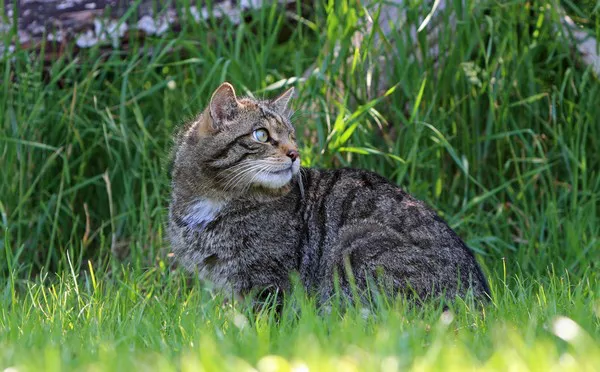Bombay cats are known for their striking appearance and playful nature. However, like all breeds, they can be prone to certain health issues. Understanding these potential problems is crucial for responsible pet ownership and ensuring your feline friend lives a long, healthy life. This article will delve into the common health concerns associated with Bombay cats, offering detailed insights and practical advice.
Genetic Predispositions
Bombay cats are generally robust, but they do have genetic predispositions to certain conditions. Breeders may inadvertently perpetuate these issues if they do not screen for them. Here are some of the most notable genetic health concerns:
1. Hypertrophic Cardiomyopathy (HCM): This is the most common heart disease in cats and is particularly prevalent in certain breeds, including the Bombay. HCM causes the heart muscle to thicken, making it harder for the heart to pump blood effectively. Symptoms may include lethargy, difficulty breathing, and sudden collapse. Regular veterinary check-ups and echocardiograms can help detect this condition early.
2. Respiratory Issues: Bombay cats may also suffer from respiratory problems. Their short noses can make them susceptible to issues like brachycephalic obstructive airway syndrome (BOAS), which affects their ability to breathe properly. Signs of respiratory distress include coughing, wheezing, or excessive panting.
3. Dental Problems: Due to their unique jaw structure, Bombay cats may experience dental issues, such as overcrowded teeth and periodontal disease. Regular dental check-ups and cleanings are essential to maintain their oral health.
Nutrition and Dietary Needs
Proper nutrition is vital for maintaining the health of any cat, and Bombays are no exception. A balanced diet can help prevent obesity and related health problems. Consider the following:
1. High-Quality Cat Food: Feed your Bombay high-quality cat food that meets their nutritional needs. Look for options rich in protein and low in fillers. Cats are obligate carnivores, so their diet should primarily consist of animal-based proteins.
2. Weight Management: Bombay cats are known for their playful nature, but they can also be prone to obesity. Monitor their weight and adjust their food intake accordingly. Encourage play and exercise to keep them active and healthy.
3. Hydration: Ensure your Bombay has access to fresh water at all times. Some cats prefer running water, so consider investing in a cat water fountain to encourage hydration.
Preventive Care
Regular veterinary care is essential for the overall health of your Bombay cat. Preventive measures can help catch health issues before they become serious. Here are some key components of preventive care:
1. Vaccinations: Keep your Bombay’s vaccinations up to date. Vaccines protect against various diseases, including feline leukemia and rabies, which can be life-threatening.
2. Regular Check-ups: Schedule annual veterinary check-ups for your Bombay. These visits allow the veterinarian to monitor their overall health, perform necessary tests, and discuss any concerns you may have.
3. Parasite Control: Bombays are at risk for parasites, including fleas, ticks, and worms. Use veterinarian-recommended preventive treatments to keep these pests at bay.
See Also: Can Bombay Cats Have White Patches?
Behavioral Health
Behavioral issues can also impact the health of Bombay cats. Stress and anxiety may lead to physical health problems. Consider the following strategies to support their mental well-being:
1. Enrichment: Provide plenty of stimulation to keep your Bombay mentally engaged. Toys, scratching posts, and interactive games can prevent boredom and reduce stress.
2. Safe Spaces: Create a safe, quiet space where your cat can retreat when feeling overwhelmed. This area should be free from noise and disturbances, allowing your Bombay to relax.
3. Socialization: Bombay cats are typically social and enjoy human interaction. Spend quality time with your cat to strengthen your bond and provide emotional support.
Common Signs of Illness
Being attentive to changes in your Bombay’s behavior can help catch health issues early. Here are some common signs of illness to watch for:
1. Changes in Appetite: A sudden increase or decrease in appetite can indicate underlying health issues. Consult your veterinarian if you notice significant changes.
2. Lethargy: If your Bombay becomes unusually tired or inactive, it could be a sign of illness. Monitor their energy levels and seek veterinary advice if they seem lethargic.
3. Vomiting or Diarrhea: Occasional vomiting or diarrhea may not be a cause for concern, but persistent gastrointestinal issues warrant a visit to the vet.
Grooming and Skin Health
Proper grooming is essential for maintaining the health of your Bombay’s coat and skin. Regular grooming helps prevent matting and skin issues:
1. Brushing: Brush your Bombay’s coat regularly to remove loose hair and prevent matting. This practice also helps distribute natural oils, keeping their skin healthy.
2. Skin Checks: Regularly inspect your cat’s skin for signs of irritation, redness, or parasites. Early detection can prevent more serious issues.
3. Bathing: While cats are generally good at grooming themselves, occasional baths may be necessary if they get into something messy. Use cat-specific shampoos to avoid skin irritation.
Elderly Bombays and Age-Related Issues
As your Bombay ages, they may face age-related health issues. Understanding these challenges can help you provide the best care:
1. Arthritis: Older Bombays may develop arthritis, which can cause joint pain and stiffness. Ensure they have comfortable resting places and consult your vet for pain management options.
2. Kidney Disease: Senior cats are at risk for kidney disease, which can lead to serious health complications. Regular blood tests can help detect kidney issues early.
3. Cognitive Decline: Some older cats may experience cognitive decline, similar to dementia in humans. Keep their environment consistent and engage them with familiar activities to help manage this decline.
Conclusion
Bombay cats are generally healthy, but like all breeds, they can face specific health issues. By understanding the common health concerns associated with this breed, providing proper nutrition, and maintaining regular veterinary care, you can help ensure your Bombay lives a happy, healthy life. Always be attentive to their behavior and physical condition, and don’t hesitate to consult your veterinarian with any concerns. A proactive approach to your cat’s health will ultimately lead to a stronger bond and a happier life for both of you.
Related Topics



























